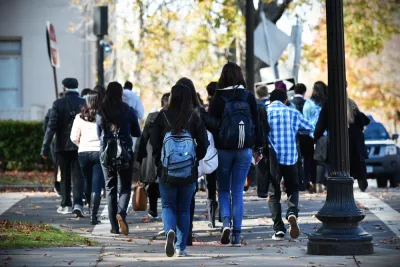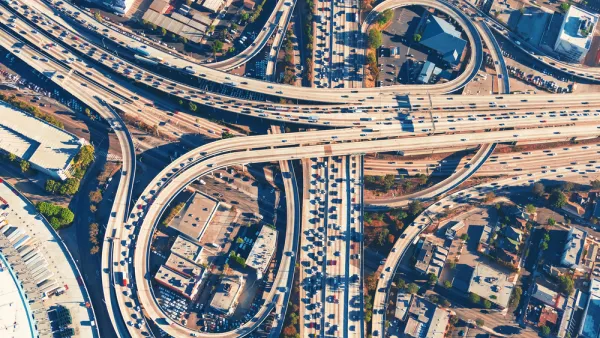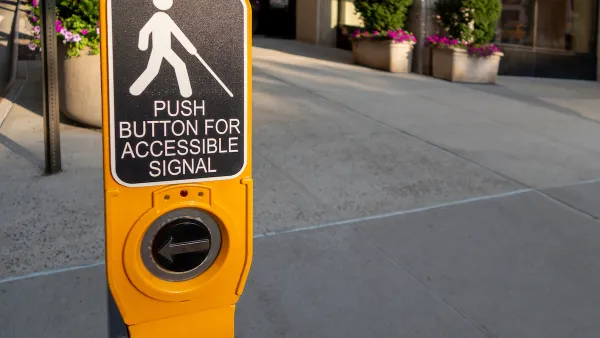An initiative to promote pedestrian-oriented infrastructure investments in Washington state highlights the lessons that policymakers can learn from people who rely on walking and public transit.

With transportation emissions accounting for almost half of Washington state's greenhouse gas emissions, making a meaningful impact calls for a reduction in reliance on personal vehicles. What better source for learning about a car-free lifestyle, asks Anna Zivarts, than those who already don't drive? A quarter of Washingtonians don't have driver's licenses, and many more don't own cars due to high maintenance costs, health issues, or personal choice. Yet policymakers consistently fail to design public infrastructure that effectively serves pedestrians and transit-dependent people.
"To get where we need to go in a system not designed for us, those of us who can’t drive have become experts in weaving together bus schedules across counties, in planning our grocery trips and doctor’s appointments days in advance so we can request rides. We have figured out how to patch together accessible ways to get to the local community center, and to cross highways that not only block fish passage, they keep us from visiting our neighbors. And if you ask us, we can tell you exactly what kinds of investments are needed to make it possible for more people to be less dependent on driving."
To bring these issues to light, the Disability Mobility Initiative is creating a storymap that features "interviews with people from across our state who rely on transit, paratransit, walking, rolling or community rides." The initiative aims to highlight how a lack of accessible infrastructure makes more people reliant on cars and suggest investments that can lead to a more equitable, inclusive, and sustainable transportation system.
FULL STORY: As we aim for less reliance on cars, learn from those who don’t drive

Analysis: Cybertruck Fatality Rate Far Exceeds That of Ford Pinto
The Tesla Cybertruck was recalled seven times last year.

National Parks Layoffs Will Cause Communities to Lose Billions
Thousands of essential park workers were laid off this week, just before the busy spring break season.

Retro-silient?: America’s First “Eco-burb,” The Woodlands Turns 50
A master-planned community north of Houston offers lessons on green infrastructure and resilient design, but falls short of its founder’s lofty affordability and walkability goals.

Test News Post 1
This is a summary

Analysis: Cybertruck Fatality Rate Far Exceeds That of Ford Pinto
The Tesla Cybertruck was recalled seven times last year.

Test News Headline 46
Test for the image on the front page.
Urban Design for Planners 1: Software Tools
This six-course series explores essential urban design concepts using open source software and equips planners with the tools they need to participate fully in the urban design process.
Planning for Universal Design
Learn the tools for implementing Universal Design in planning regulations.
EMC Planning Group, Inc.
Planetizen
Planetizen
Mpact (formerly Rail~Volution)
Great Falls Development Authority, Inc.
HUDs Office of Policy Development and Research
NYU Wagner Graduate School of Public Service




























